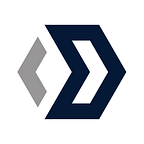Ecosystem Update — January 2021
Quick Take
- Our DEX compatible multi-wallet, XLite, will be released February 3rd at 15:00 UTC!
- Block DX v1.9.0 with automated XLite configuration has been released.
- Block DX sees highest monthly volume to date.
- Our decentralized replacement for Infura, Hydra, is set to launch in Q1 2021.
XLite Wallet — Public Release!
The wait is over. Our DEX compatible multi-wallet, XLite, will be released February 3rd at 15:00 UTC! This is a major leap forward for the Blocknet, and marks the beginning of the new cross-chain DeFi era — we couldn’t be more excited.
XLite is a first-of-kind DEX compatible lite wallet. Put simply, it’s a lightweight multiwallet that you can connect to Block DX decentralized exchange to securely trade real crypto using cross-chain atomic swaps.
Until now, users were required to run full nodes of each coin they wanted to trade on Block DX, and while this ensured a high level of security, it was not practical for many users.
XLite will be available at xlitewallet.com and is compatible with Windows, Linux and Mac. Supported coins will initially include Bitcoin (BTC), Litecoin (LTC), Blocknet (BLOCK), Dash (DASH), Syscoin (SYS), and PIVX (PIVX), with more to come!
BLOCK DX 1.9.0 Released
We have release Block DX 1.9.0! This release automates the process of connecting to XLite for trading, which previously required some manual configuration. With the upcoming release of XLite on February 3rd, cross-chain atomic swaps are becoming significantly more user friendly.
Monthly Trading Volume Exceeds $100,000
Trading volume on our peer-to-peer decentralized exchange, Block DX, is continuing to grow and saw monthly trading volume of over $100,000 in January 2021 — our best month yet.
Hydra Documentation in the Works
After launching XLite, we will be gearing up to launch Hydra, our decentralized replacement for Infura. What sets Hydra apart from Infura is that the Ethereum nodes are not operated by a single centralized organization, but a decentralized network of service nodes using Blocknet’s XRouter protocol.
XRouter is the communication layer of the Blocknet Protocol that enables dApps to consume services and verify data on any blockchain, without the need to host blockchains locally. XRouter harnesses the Blocknet’s interchain overlay network (i.e. service nodes) and SPV proofs, to empower developers to build lightweight dApps that are decentralized from the ground up, and can be composed of services and contracts on many chains.
This decentralized architecture has several advantages over Infura:
- Antifragile — The Ethereum nodes are distributed amongst many independent nodes, so there is no single point of failure.
- Security — Users can make requests to several service nodes in order to gain higher confidence in the result.
- Sybil Resistance — It requires 5000 BLOCK as collateral to operate a service node, which ensures service nodes are financially invested in Blocknet’s success and prevents the network from being overwhelmed by an attacker.
Hydra will also have a payment gateway functionality similar to Infura. Users will be able to send a request with a payment (e.g. ETH or aBLOCK) to service nodes in return for a project ID and API that will allow them to make a certain number of requests to the Blocknet network based on how much they paid.
It will also be easy for developers to switch to Hydra from Infura. Hydra is designed to be a drop-in URL replacement for Infura, meaning that developers will be able to switch to Hydra effortlessly, with only a few clicks. While Hydra is starting with Ethereum, it is compatible with any blockchain.
The result is that developers and users will no longer be forced to rely on centralized infrastructures to connect to decentralized blockchain networks.
Governance
We are an open sourced, self-funded, and self-governed project with dedicated contributors around the world.
Our governance system was built from the ground up to be on-chain and completely transparent. We are the first project to have implemented on-chain governance on a Bitcoin codebase.
Up to 40,000 BLOCK are minted and distributed each month to successful proposals in an on-chain vote called a Superblock. You can learn more about our on-chain governance process here.
Looking Forward
With the upcoming public releases of Xlite and Hyrda, there is good reason to be excited about the future of the Blocknet project and its impact on the DeFi Ecosystem. We will continue to keep you updated on all the important developments. To stay up to date with the latest, subscribe to our Newsletter and join our Discord.
Onwards and upwards,
– The Blocknet Contributors
About Blocknet
The Blocknet is a decentralized network and protocol suite for seamless cross-blockchain interoperability.
